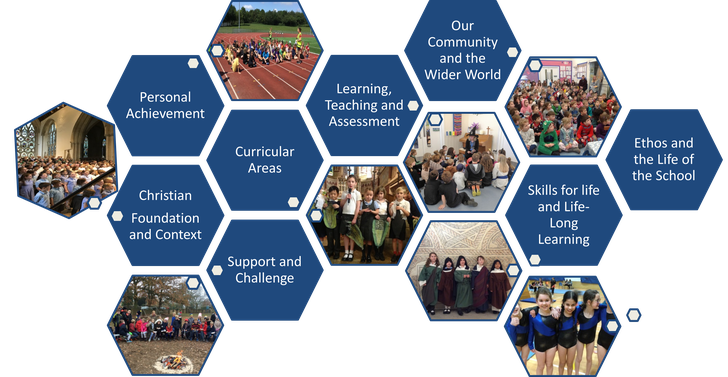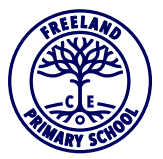Curriculum
Our Curriculum Design
At Freeland CE Primary School we have worked collaboratively to design a rationale which underpins our Christian Values and values of learning so that we encourage and develop every child to ‘know their roots, branch out and fly high’.

Teaching and Learning Policy
Please take a look at our curriculum map for all key stages. We have developed this to give an overview of the journey that each child will go through during their time at Freeland Primary School. This is not a concrete document and is subject to change depending on the needs and interests of the children. Our aim is to give our children rich learning opportunities and valuable experiences, to encourage them to be life long, inquisitive learners.
Freeland Primary School Curriculum Map including experiences, trips and visitors.
Assessment
Phonics Scheme used at Freeland CE Primary School
We use Little Wandle as our phonics scheme. This is the link to the web page for Little Wandle and advice for parents to enable them to support their children effectively in learning phonics.
https://www.littlewandlelettersandsounds.org.uk/resources/for-parents/
EPA Curriculum Statement
EPA schools have designed a curriculum which aims to:
- Have high aspirations for all children
- Encourage reflection, deep thinking and resilience
- Foster independence and raise self-esteem
- Value and develop pupils’ sense of belonging and pride in their achievements
- Develop empathy, collaboration and a sense of community
- Prepare children to make a positive contribution to modern Britain
Our goal is that children are empowered to grow as individuals academically, spiritually, morally, and culturally aiming to achieve success whatever their strengths. Our broad and balanced curriculum is under-pinned by the National Curriculum but enhanced and adapted with experiences and opportunities including high quality artistic, creative and sporting activities. Both cross-curricular and discrete approaches are adopted, depending on the nature of learning, and opportunity to allow links between themes and subjects foster a love of learning. Our schools have adopted the locally agreed syllabus for Religious Education to ensure our pupils develop mutual respect for, and tolerance of, those with different faiths and beliefs and those with no faith.
The teaching strategies within EPA schools enable the curriculum to be organised for all children to study and learn within a variety of settings and situations. Learning activities are carefully designed to enable all learners to progress well from their own starting points. Please see our class pages to see our curriculum in action.
